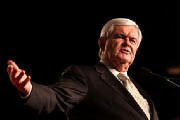In this issue, we turn to the renaissance of Yiddish, a phenomenon that encompasses (are you seated comfortably?) Yiddish books and theatre, radio and music, humor and cooking, politics, slang and--yes--nostalgia. Enjoy, among other treasures, a review of the latest I B. Singer bio; a brief history of Yiddish Socialistas by scholar Tony Michels; and an homage to klezmer music--the soundrack of new Yiddish renaissance.
For this issue of Secular Culture & Ideas we take a close look at “making Judaism modern.” At universities and colleges in North America and Israel, unique courses in Jewish secularism are being offered for the first time. The Posen Foundation supports the development of these academic programs, which examine the secularization of the Jewish experience. In this issue we bring to you thought-provoking articles that appear on course syllabi, as well as several selections from other secular writers. These works speak to the question of what it means to be a Jew in the contemporary world.
For this Memoirs Issue of Secular Culture & Ideas we bring you the reflections of seven secular Jews, some of their names are already familiar to you, and others you will encounter for the first time. This issue is exciting as it brings together a number of perspectives from a diverse group of authors, illustrating the complexity and multiplicity of secular Jewish voices over the past century. These articles focus on issues of identity, community, and challenging tradition.
For this issue of Secular Culture & Ideas we turn to secularization among Sephardic and Mizrahi Jewish cultures and communities. This special focus illustrates the global and varied processes of secularization during the nineteenth and twentieth centuries. Rather than attesting to a homegrown secularization movement, as that experienced within the world of Ashkenazi Jewry, the Sephardic and Mizrahi experiences attest to the influences of European colonialism, the Sephardic and Mizrahi legacy of tolerance and coexistence, and the role that language plays in identity.
In this issue of Secular Culture & Ideas we celebrate the diversity of Jewish languages, looking closely at Hebrew and Yiddish, of course, but also beyond those to the multitude of languages that Jews speak (and have spoken) around the world. The essays in this issue explore the influence of Jews on language; the literary engagement of Mizrahi Jews; the dynamism of Jewish languages; and the continuing development of Jewish languages such as Yiddish and Hebrew.
In this back-to-school issue of Secular Culture & Ideas we highlight the Posen Foundation Program for the Study of Secular Jewish History and Cultures. Through this landmark program, academic courses are being developed and taught about the study of Jewish secularism and secularization on campuses across North America, Israel, and Europe. In fact, all of the essays in this issue were either written by professors who teach these courses, or are excerpts from books that appear on course syllabi. The professors’ essays introduce their unique and exciting research on secular Jewish culture, history, and enlightenment. After all, why should students be the only ones to enjoy this material?
In this issue of Secular Culture & Ideas we highlight the many expressions of Jewish secularism. This focus illuminates the tradition of Jewish secularism from secular works in the Bible to Harvey Pekar’s highly acclaimed comic books. Looking at figures such as the Bible’s powerful women prophets, and father of the Haskalah (the Jewish Enlightenment) Moses Mendelssohn, Jewish secularism and culture are explored throughout history in a multitude of voices.
Secularism, secularity, secularization: these terms are related, but are hardly interchangeable. In this issue, we explore the nuances of each term in the context of Jewish thought, Jewish history, and Jewish identity. In a series of excerpts from recently published books, we’ll probe different aspects of the secular Jewish experience.
In the spirit of being “pioneering,” we're offering our first ever double-issue of Secular Culture & Ideas. In issue 1, you’ll find articles about individuals who carved a new path from ancient tradition; in issue 2, you’ll read about the continuing legacy of such creativity, with articles by scholars at the vanguard of Jewish Studies. Contributing to secular Jewish art, education, and thought, these scholars, intellectuals, and freethinkers present new ways of engaging with Judaism as culture.
Our two issues may seem distinct, but they also overlap. Among the foremost Jewish pioneers of today are the scholars who study the thinkers, doers, and pioneers of yesterday.
|

|
 |
Recently in News & Notes...
Around the Web (February 17, 2012)
-
Looks like the LDS has some 'splainin' to do. [JTA]

- Israeli author Etgar Keret talks film, readers, and getting lost in translation. [Heeb]
- The cow that wasn't kosher...for Israeli TV. [Haaretz]
- The "Angry Jewish Tweeter": now officially a Jewish stereotype. [Tablet]
Image credit: Wikimedia Commons
Around the Web: Tu B'Shevat (February 8, 2012)
- Jewish leaders institutionalize tree-hugging. Well, not exactly. [JTA]

- Apparently, Jews have their own spin on everything. Even ecology (read: Jewcology). [eJewish Philanthropy]
- It's the New Year of the Trees, and the Grammy-award winning band Ozomatli wants to rock your body in celebration. [JJ]
- A Tu B'Shevat enthusiast's inventory of ways to get creative with the holiday. [Tablet]
Image credit: Jan Tik, "Cannibal Tree"/Wikimedia Commons
The "Koshergate" That Wasn't (February 1, 2012)
With the Florida primary over and the victor decided (Romney), the scandal known as "Koshergate" now seems like a non-scandal, a shameless Gingrichian stunt, a plea—or perhaps a ploy—for attention.

What was the hullabaloo about? Apparently Romney, as governor of Massachusetts, tried to cut government funding for kosher meal programs in nursing homes. According to Fox News, Gingrich suggested Romney's move was "a secular state assault on people of faith." (If you think that was bit much, check out his campaign's robocall.)
On the other hand, can you really blame the guy for trying to get some free advertising? With Romney outspending him by an order of magnitude, Gingrich needed to do something to keep himself relevant. And when you're trying to do that in a state known for its population of Jewish grandparents, it makes sense to go for the gut: accusing your opponent of being anti-Jewish in a nursing home. It may not be a traditional line of attack. But then again, part of Gingrich's resurgent popularity is that he insists on playing by his own rules.
Image credit: Gage Skidmore/Wikimedia Commons

|
